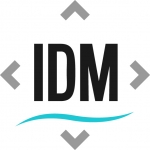„Cultural Exchange between East and West. Europe’s rediscovered wealth – What the accession-candidates in Eastern and Central Europe have to offer“
Walter Reichel (Hg.)
Preface
We live in a time in which the building of the house of Europe is always more quickly occurring. “Western” and “eastern” Europe are moving closer together. What for more than a decade was not imaginable is happening today before our eyes at a breathless speed. Economies are moving together and searching for a narrow exchange, political systems are interacting and making closer contacts.
Besides these big and important areas it is also necessary to give the culture and the cultural uniqueness of the European regions their proper place. In addition to engagement with politics and economy, space should be left for the consciousness of those things which are fundamental to humans. We should give attention to the variety of different lifestyles and different historical roots like the variety of landscapes which have shaped humans and made them unique.
Currently these similarities are those which the culture in central Europe is widely known for. Austria, to pick an example, is more connected to her neighbours in the “East” than she is separated. After the “annus mirabilis” in 1989 central-European societies started searching for a new identity after years of comprehensive patronization. In many ways they were tied to the roots of their heritage reaching back to the nineteenth century and still affecting life in the present.
v The offer of this multifaceted culture invites you to the adventure of discovery and also encourages the crossing of borders. Especially in Europe we have the possibility to choose from a wide array of cultural varieties. On one side this can be seen as a problematic inheritance but on the other side a treasure which Europe brought forth and which it is defined by.
Finding the soul of Europe is more than just a task of the hour. Neither economic nor political power alone can succeed in putting this to work – it will be executed through a substantial part of culture.
Gerhard Fink
Foreword
Ninety young researchers from 19 different European countries discussed in 3 workshops issues of cultural exchange in Europe. The most important finding of the conference was that the East has a lot to offer to the West: A critical way of thinking, multiculturalism, and a variety of traditions and customs which will contribute to an even more colorful Europe.
Young researchers took an active part in the conference supported by the organisers and the keynote speakers (Prof. Bernik/ Ljubljana, Prof. Gyarfá?ová/ Bratislava, Prof. Purchla/Kraków). Bright young people from all over Europe brought up their ideas, presented research results, and shared their experience and their visions of the future Europe.
The conference was the first event within a larger project which took place in Vienna on Oct. 15-16, 2001. It was organised by the Institute for the Danube Region and Central Europe (IDM), the European Commission, and the Austrian Federal Ministry for Education, Science and Culture.
The project will be finished with a second conference on “Political Priorities between East and West” in March 2002, where young researchers are again invited to meet in Vienna and think about the Europe that lies ahead.
1/2002

